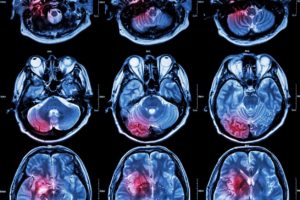 How to Identify Post-Traumatic Stress Disorder (PTSD) in Yourself and Others
How to Identify Post-Traumatic Stress Disorder (PTSD) in Yourself and Others
By: Jessica Winebarger
What is trauma?
Before identifying the symptoms of post-traumatic stress disorder (PTSD), it is important to discuss and define trauma, as many individuals rule themselves and loved ones out from experiencing PTSD due to a limited understanding of what can be identified as trauma. Trauma
is a strong emotional response to anything the body and mind perceive as a traumatic and distressing event. This event may be something you have experienced, witnessed, or even just heard about. The event does not define the trauma so much as the body’s response does.
Trauma alters an individual’s body, effecting the nervous system and the brain. Because the event is not what defines a trauma, individuals can experience both “big T Traumas” and “little t traumas.” “Big T Traumas” are what many may identify as traumatic events, such as war or a
natural disaster. These traumas are also more likely to meet the criteria for PTSD. “Little t traumas” are the events that are not life-threatening and may be mistakenly discounted as not as important or altering due to the nature of the event. Although “big T” traumas are more likely to meet the criteria for a PTSD diagnosis, both “big T” and “little t” traumas should be taken into account when assessing for post-traumatic stress disorder. As stated above, individuals who experience any type of trauma experience body responses. Some of these individuals go on to develop a more intense response called post-traumatic stress disorder.
Symptoms of PTSD:
In addition to the diagnostic requirement of experiencing a trauma, post-traumatic stress disorder is diagnosed when individuals are experiencing a certain combination of symptoms. These symptoms include “intrusions, avoidance, negative alterations in cognitions and mood, and alterations in reactivity” (American Psychiatric Association, 2013). Intrusion symptoms include nightmares, flashbacks, and unwanted memories. An individual only needs to experience one of these symptoms to meet the criteria for a PTSD diagnosis. Avoidance symptoms include avoiding thoughts, feelings, or reminders of the traumatic event. Perhaps the most common symptom that individuals with any level of trauma bring to therapy are alterations in cognition and mood. These symptoms include negative beliefs about self, others, and the world; unhealthy self-blame; memory loss of the event; negative emotions with a difficulty feeling positive emotions; feeling alone; and not enjoying things that used to be enjoyable. In order to be diagnosed with PTSD, an individual must be experiencing two of these symptoms. The final set of symptoms included in a PTSD diagnosis are alterations in reactivity. This includes increased irritability or even aggression, risky behaviors, hypervigilance, startling easily, trouble sleeping, and difficulty concentrating.
Seeking Help:
Regardless of whether or not you or a loved one meets criteria for post-traumatic stress disorder, it can be helpful to speak to a therapist when you have experienced either a “big T” or “little t” trauma. Because trauma affects the body and mind, therapists are trained to help your body and mind readjust to life after trauma. Therapy will help decrease the negative symptoms listed above and help you feel more in control of your life again. Many who go through therapy following a traumatic event find that they experience what some have labeled “post-traumatic growth” (Tedeshi & Calhoun, 2004).
If you or a loved one have experienced a trauma, please reach out to us at SureHopeCounseling. We are honored to walk with you through this journey of healing and growth. The therapists who specialize in working with trauma are listed below:
Mike Vaughn
980-292-3586
[email protected]
Kelly Saylor
980-272-8180
[email protected]
Cynthia Morris
704-565-9843
[email protected]
Jim Katsoudas
704-954-8035
[email protected]
Mary Moussa Shea
704-750-1570
[email protected]
Jessica Winebarger
704-729-4979
[email protected]
Callie Gross
704-954-8104
[email protected]
Resources:
American Psychiatric Association. (2013). Diagnostic and statistical manual of mental
disorders (5th ed.). Arlington, VA.
Tedeshi, R.G., & Calhoun, L.G. (2004). Posttraumatic Growth: Conceptual Foundation and
Empirical Evidence. Philadelphia, PA: Lawrence Erlbaum Associates.
Work with Jessica Winebarger – https://surehopecounseling.com/jessica-winebarger-ma-lpca/
